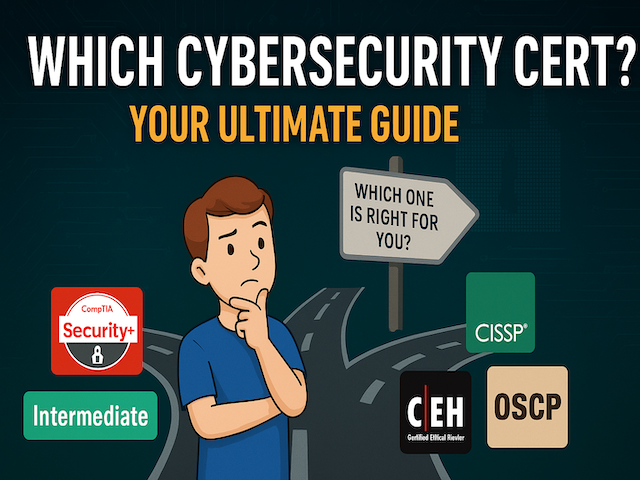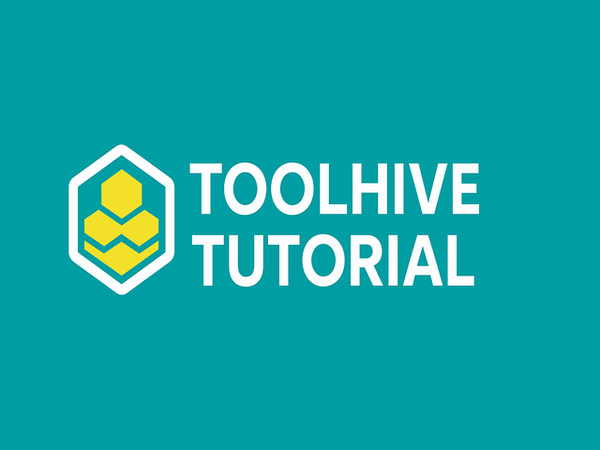Cybersecurity Certifications: Which One is Right for You?

Cybersecurity is no longer the sole province of hoodied geeks clacking away in dimly lit rooms anymore. It's now one of the most sought-after fields with companies always seeking experts who can safeguard their systems from attacks and threats.
However, if you're just starting out in the field—or even if you're looking to advance—you've likely wondered:
"What cybersecurity certification do I need?"
With so many to pick from, it may be overwhelming not knowing where to even begin. Don't worry—this guide does the breakdown for you so you can select the certification most suitable for your experience and what you're looking to achieve.
Prefer watching instead of reading? Here’s a quick video guide
Why Should I Get Certified in Cybersecurity?
Let's just discuss why certifications are important before diving into detailed certifications.
Certifications demonstrate:
- You've learned proven knowledge in a given field.
- You're committed to cybersecurity.
- Your abilities are something that employers can bank on (particularly if you're a newcomer or wanting to shift careers).
They can assist you in getting hired, promoted, or even getting a raise.
Learning the Levels: Beginner to Advanced
Cybersecurity certifications usually take three levels:
- Beginner (Entry-Level)
- Intermediate (Mid-Level)
- Advanced (Expert-Level)
Let's go through the top certs for each level and inform you on which one to select.
Beginner-Level Certifications
If you're new and don't have hands-on experience, these are great places to start:
CompTIA Security+
- Best For: Newbies who want a solid foundation.
- Covers: Network security fundamentals, threats, risk management, and compliance.
- Why It's Good: Widespread recognition, no experience required, and provides a well-rounded introduction to cybersecurity.
Pro Tip: If you're a career changer or student, start with Security+ before jumping into more advanced topics.
Certified Cybersecurity Entry-level Certification (ISC2 CC)
- Ideal For: Absolute beginners with no background.
- Covers: Security principles, risk, incident handling, access control, etc.
- Why It's Great: Fresh but from (ISC)², the very same people responsible for the CISSP. Cheap and a breeze.
Google Cybersecurity Certificate (Coursera)
- Ideal For: Career starters and self-teachers.
- Hands-on skills such as response to threats, detection, tools, and foundations in networking.
- Why It's Good: No experience needed. Learning through real-world examples.
Intermediate-Level Certifications
You already have some IT or security experience, and these are the next to further enhance your skills and specialize.
Certified Ethical Hacker (CEH)
- Best For: Those interested in ethical hacking or penetration testing.
- Covers: Footprinting, scanning, hacking into systems, malware, sniffing, social engineering, etc.
- Why It's Good: Famous everywhere in the world and gives a glimpse into the mind of hackers.
Heads-up: CEH is more lab practice than theory. Use it with labs for enhanced learning.
CompTIA Cybersecurity Analyst (CySA+)
- Best For: Those who want to learn threat detection and incident response.
- Covers: Behavioral analytics, threat hunting, SIEM tools, and vulnerability management.
- Why It's Good: Best for SOC analysts and blue team positions.
eJPT (Junior Penetration Tester by eLearnSecurity)
- Best For: Those interested in becoming an ethical hacker and want to learn through hands-on experience.
- Covers: Network scanning, exploitation, web attacks, and others.
- Why It’s Good: Very practical, cheaper than CEH, and great for real-world testing skills.
Advanced-Level Certifications
If you’re already working in security and want to move into leadership or specialized roles, these are for you.
Certified Information Systems Security Professional (CISSP)
- Best For: Senior-level professionals, managers, and those progressing towards leadership.
- Includes: Eight such as security and risk management, architecture, identity, software security, etc.
- Why It's Good: Very well known and in the majority of situations required for senior-level positions.
Note: 5 years experience related (or 4 with degree).
Offensive Security Certified Professional (OSCP)
- Best For: Hardcore white-hat hackers and pen testers.
- Includes: Exploitation, buffer overflows, privilege escalation, and real-world attacks.
- Why It's Good: Very hands-on. Employers love it.
Warning: Not for beginners. Don't mess around with the 24-hour exam.
CISM (Certified Information Security Manager)
- Best For: Those who want a management position.
- Covers: Governance, risk, compliance, and security program management.
- Why It's Good: Accepted by organizations looking for leader-focused professionals.
Tips Before You Jump In
- Start small. You don't have to get the biggest, baddest cert immediately. Master the basics first.
- Practice by doing. Utilize sites such as TryHackMe, Hack The Box, or CyberSecLabs.
- Join groups. There are working communities of cybersecurity people on Twitter, Reddit, and Discord to contact for learning and assistance.
- Use free/budget resources. All certs utilize free study guides or YouTube teaching to assist.
Final Thoughts
Cybersecurity is a vast industry. You may wish to protect networks, track down hackers, lead security teams, or ethically hack into systems—there's something for you. The trick is to select certifications that align with your level currently and where you are headed.
And don't forget: certifications are tools, not trophies. Most importantly is that you implement the knowledge.
Begin where you are, continue learning, and see how far you will travel.




